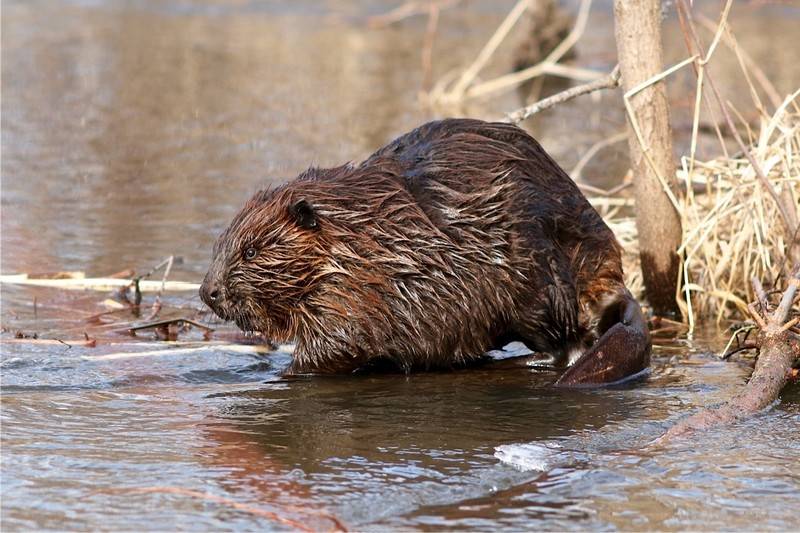The Trump administration has feuded with California over the state’s sanctuary laws, its stricter standards on tailpipe emissions, and the president’s declaration of a national emergency at the border.
But apparently there’s one dispute, involving a certain fur-bearing mammal, that the federal government apparently wants no part of.
Threatened with legal action by an environmental group, the Wildlife Services section of the U.S. Department of Agriculture has agreed to stop killing beavers, at least temporarily, in more than 11,000 miles of river throughout California. The group, the Center for Biological Diversity, said the eradication of the beavers was putting the government out of compliance with the federal Endangered Species Act because their removal is harming other animals.

Last year, as part of its ongoing mission to reduce conflicts between wildlife and people, Wildlife Services killed 859 beavers around the state. The animals often gnaw on trees people don’t want damaged, and the dams they build can cause roadway flooding. While the agency maintains that 96% of all the beavers it killed in the past five years were removed due to concerns about harm to infrastructure as well as to human health and safety, the Center for Biological Diversity says that lethal measures aren’t necessary, and that beavers are critical to ecosystems.
The center filed a notice of intent to sue Wildlife Services in May, arguing that current practices violate Section 7 of the Endangered Species Act, which requires federal agencies to not only protect certain species but also avoid actions which threaten their critical habitats. Although beavers themselves are not endangered, 10 species of salmon, as well as the Oregon spotted frog, Southwestern willow flycatcher and tidewater goby all live in environments created when beavers build dams, slowing the flow of rivers and creating deep pools.
In a July 29 letter sent to the Center for Biological Diversity, Wildlife Services said it would stop killing beavers and removing dams in those habitats containing endangered species, except where public safety is at stake, and pending consultation with the U.S. Fish and Wildlife Service and the National Marine Fisheries Service over the effects of eradicating beavers on the other species.
Collette Adkins, biologist and senior attorney for the Center for Biological Diversity, says she expects the restrictions to be permanent. If they are lifted, she says, the group is likely to carry through with its lawsuit.
“It really baffles me as to why Wildlife Services is killing beavers in areas that really are … natural areas where endangered wildlife occur,” she said. “So the commitments we got from the agency I think are just real common sense.”
Adkins also says that Wildlife Services’ approach to managing beavers is unreasonably extreme, and that many of the hazards or annoyances they cause can be mitigated in nonlethal ways. Unwanted tree damage, for example, can be prevented by covering tree trunks with chicken wire, and flow devices can be inserted into rivers to prevent large-scale flooding, she said.
A spokesperson for Wildlife Services said the agency had no further comment beyond what was contained in the letter to the Center for Biological Diversity, which was addressed to Adkins. Wildlife Services “takes its ESA [Endangered Species Act] obligations, as well as public input, very seriously,” wrote the agency’s State Director Dennis Orthmeyer. “I see that you have stated that your client, the Center for Biological Diversity (CBD), is contemplating filing a lawsuit. I hope that this letter will convince you otherwise. If you or CBD has any additional concerns, I would be happy to engage in further discussions.”
The debate over beavers in California represents a longstanding disagreement between the CBD and Wildlife Services. Adkins says the group is “frustrated” by the scale of Wildlife Services’ animal eradication. In 2018 alone, Wildlife Services killed nearly 2.7 million animals nationwide, 1.2 million of which were invasive species. In November 2017, the CBD filed another intent to sue over the agency’s practices in Oregon, also citing violations of Section 7 of the Endangered Species Act. Last year, Wildlife Services agreed to stop hunting beavers, river otter, muskrat and mink in all of Oregon, pending a review of the effect of their removal on endangered fish; to date, Wildlife Services has still not completed its review, and hunting has not resumed.
